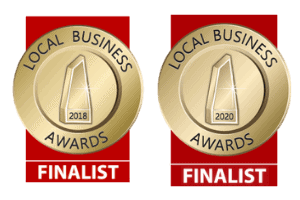Written by: Jessica Yun
As nurses know, no matter how junior or senior you may be, bullying is a very common experience in the nursing profession. Being a female-dominated industry, nurses often find themselves in a rather (for lack of a better word) bitchy environment; combined with the hierarchical culture of nursing, from AINs to ENs to RNs to CNSs to CNEs to NUMs to DCSs to DONs, new nurses often find themselves in an unfriendly, unsupportive environment and culture.
This harmful environment becomes further exacerbated when one throws into the equation the high stress environment within which nurses work. Existing structural and physical problems, such as imbalanced nurse-patient ratios and being on their feet running around tending to patients all day, takes a definite physical and emotional toll on nurses, leaving them drained by the time they finish a shift. Have you ever had the experience of going home, only to feel dread at facing the same environment the following day or later in the week?
Sadly, each workplace has one or two of these ‘Negative Nancys’. When new nurses enter a unit, encounter this culture and may be intimidated by the facilitators of this unfriendly environment, they often join this kind of behaviour to fit in rather than go against the grain. Understandably, they may feel it is their only way of acceptance into the new team; and as the status quo has not been challenged, the culture is further perpetuated by these new nurses and goes on.
WHAT IS BULLYING?
Bullying in nursing doesn’t look like the stereotypical form of bullying we often hear about. Aside from the more obvious unkind words or aggressive or unkind behaviour (overt), bullying in nursing is often covert. This means it’s not only harder to spot or name, but it’s harder to take action on it and call out something that may not appear to exist as a problem.
Covert bullying can take on the following forms:
Indirect, subtle behaviour from nurses that is intended to isolate someone by ignoring them, leaving nurses to ‘figure it out for themselves’ or even just being curt in answering questions. Acting in a cold and unhelpful manner, particularly towards new nurses, makes it doubly difficult for them to do their jobs properly and severely impacting the quality of care that is being delivered to patients.
‘Clique’ mentality: what may look like ‘harmless’ gossiping or sharing unkind words, even when passed off as a ‘joke, itself a form of covert bullying, particularly as it is at the exclusion of others. Of course, there have been instances where we ourselves may have done this without realising!
Negative attitudes, such as patronisation or condescension, impatience or failing to recognise another nurse’s good work to a superior is also behaviour that negates or invalidates nurses.
Gratuitous criticism, or going overboard when correcting someone, is also a bullying tactic, since it can be covered up as part of the job or teaching the new nurse the ropes. This may involve raising your voice at the person and embarrassing or intimidating them in front of others, and can be considered verbal abuse.
If you are a new nurse, it will do you good to give yourself a mental pep talk before you start in your new facility, as you may soon find yourself facing a situation where this kind of bullying is fully ingrained in the culture of your new facility with no one to turn to.
Who gets bullied?
The stressful nature of the job builds pent-up frustration in nurses which is often taken out on the nurse that may be perceived as the weakest member of the unit – making new nurses an easy target. Nurses from other departments and agency nurses are easy victims, too. Disappointingly, most bullying occurs from nurse to nurse.
“Certain environments ‘breed’ bullies,” says Healthcare HQ Director Angela Thwaites. “Behave the way others behave, or risk being considered an outsider. It’s the classic ‘if you can’t beat them, join them’ mentality.”
SO WHAT CAN WE DO ABOUT BULLYING?
One thing is certain: if we stay silent, nothing will change. The first thing to recognise is that change begins with us.
And this doesn’t need to be in a showy, dramatic scenes in front of patients and other nurses. It can be as simple as refusing to be a bystander – walking away from gossiping when it’s happening and refusing to participate in underhanded efforts to ostracise a new member of the team.
Breaking the culture is easier said than done, but if we encourage and equip the younger nurses entering the workforce to stamp it out, the problem will dissipate over time – a slow but sure change in culture will emerge. While it may never disappear altogether, it will improve.
Before we think about how to face up to bullies, a self-audit will help:
· Address people by name. Remembering other nurses’ names is a sign of respect – and if you can’t remember the name of a new nurse, ask for it instead of just saying “hey”, “excuse me” or not addressing them at all.
· Be aware of other nurses’ workload and provide support where you can.
· Avoid gossip – walk away if it’s happening, and don’t spread it; speak privately to the other person if you need to raise an issue with them.
· Don’t stand by if someone else is getting treated unfairly – step in and intervene. Speaking up does wonders, because it sets the standard and shows that certain kinds of behaviour is unacceptable.

If you’re a new nurse – this can start, and end, with you. At the end of the day, it’s all about educating the new younger, scared and more vulnerable nurses go against the grain rather than join them, which in turn enables them.
“It’s hard and very frightening for new nurses, but if they know they have the backing from management and industry standards as a whole, perhaps it may be considered more acceptable to speak out,” Angela says. “Gauge for yourself who are the more approachable and avoid those of whom you feel that your voice will fall upon deaf ears.”
It also pays to know you have a great team behind you to be your backup in case any sticky situations do come up. As a healthcare agency committed to looking after its staff, Healthcare HQ does not, under any circumstance, condone or tolerate bullying behaviour of any kind, and maintains close relationships with clients to ensure agency staff are not being mistreated.
“We educate our client and their ward staff (RNs, ENs and AINs) before it reaches this stage where bullying behaviour may rear its ugly head. We promptly and confidentially (with sensitivity, of course) intervene if we receive any form of feedback of bullying behaviour taking place. We also have appropriate reporting processes in place and take early corrective action to deal with bullying behaviour.”
In addition to this, Healthcare HQ provide leadership and role modelling in relation to appropriate and professional behaviour. “Our view is that the early intervention approach is always the best strategy,” says Angela.
However, Angela does remark that chancing across bullying is quite rare. “Perhaps this may be a result of our reputation for supporting staff and client staff knowing that HHQ staff are encouraged to come back to us with regular feedback.
“We’re one of those agencies who very much keep our finger on the pulse. We know what’s going on out there so watch out!”
Are you a nurse looking for the right agency to begin work? We pride ourselves on supporting and mentoring all our staff. Contact Healthcare HQ on 1800 733 709, email us at [email protected] or view our job vacancies to talk about opportunities for employment.







